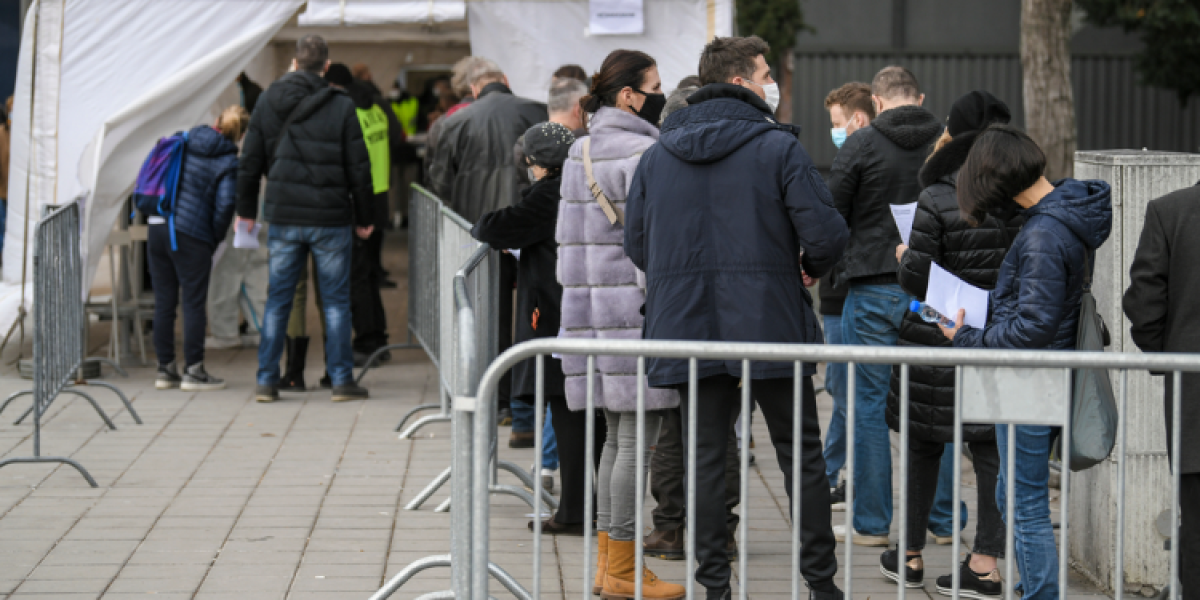
COVID-19 vaccination is off to a good start for a long-lasting debate with thousands of people around the globe who are against it. Still, many countries are considering different means to boost their vaccination campaigns to achieve herd immunity as they reopen their borders. Among these measures are rewards and sanctions.
Prizes on offer for immunised people
Achieving herd immunity to contain the pandemic has now become a priority for most countries. With the continuous shipment of new stocks of vaccines, many countries are speeding up their COVID-19 vaccination campaigns. Still, millions of people around the world keep on resisting the urgency for various reasons. The risks of having side effects, no guarantee of total immunity against the virus, unapproved vaccines that are not recognised overseas, or simply ignorance are some of these reasons. But several countries are going out of their way to encourage their populations to get the jab, and it's working!
China was one of the first countries to experiment a rewards system when information and awareness campaigns did not work as expected. For example, people aged 60 and above who had already received their first dose were rewarded with trays of eggs! In large cities, immunised people received discounts, coupons or bonus points by presenting their vaccination certificates in supermarkets and shopping malls. In Hong Kong, residents were given the choice of which vaccine they wanted to be inoculated with: Sinovac or BioNTech. And that's not all! To encourage business owners to get the jab, some companies have been offering prizes such as a brand new apartment worth $ 1.4 million. Bars and restaurants are also giving discounts to vaccinated customers.
In the United Arab Emirates, Dubai found the perfect trick: fully vaccinated people were eligible for discounts ranging from 20% to 30% on restaurant bills! India, one of the world's most affected countries by the pandemic, with a death toll of more than 400,000, is following the trend as well. As anti-vaccine groups started getting bigger, the government announced rewards for people who would submit the best photos of themselves getting the jab with original quotes. This prize, worth Rs 5,000, will be offered to the ten best entries each month until the end of 2021. Other states in India have announced additional prices. In the state of Gujarat, for example, vaccinated women were delighted to receive gold nose pins while the men got blenders as a gift. In Andhra Pradesh, the authorities came to an agreement with a restaurant in Vizianagaram to offer free biryani to people coming to get the jab at the local vaccination camp.
But Asia is not the only region to offer bonuses to boost its vaccination campaign. Other countries, such as the United States, have also committed to achieving herd immunity in early June, before Independence Day celebrations. On the occasion, people aged over 21 who were willing to get the jab were offered free beer tours in several states. In Ohio, a lottery worth $ 1 million was announced for five vaccinated adults. The state of Maryland also announced a lottery worth $ 2 million for its residents who have been inoculated. In New York, people aged over 18 got scratch cards upon getting the jab.
This trend hasn't spared Europe either. Serbia, for example, had announced a cash bonus for everyone who gets vaccinated before the end of May. In other European countries, rewards included not only free tickets to Euro 2020 matches but also free doughnuts, hot dogs, over the counter drugs, bulls and cows in the countryside, and so much more! In early July, Moscow announced that it would offer five cars per week to vaccinated people following a lucky draw.
Get the jab or pay a fine
Meanwhile, many countries are still struggling to encourage their populations to get vaccinated. Some of them had no choice but to introduce or strengthen sanctions for those who refused to get the jab. For example, in the United Arab Emirates, unvaccinated people are denied access to events such as cultural and artistic shows and sports competitions. In Saudi Arabia, access to shopping centres will be prohibited from August, except for those who can produce proof of vaccination. In some states in India, such as Uttar Pradesh, unvaccinated people cannot purchase alcoholic drinks. Indonesia has introduced a fine of $ 350 for people who refuse to get the jab, especially in Jakarta.
In France, President Emmanuel Macron announced on Monday that the vaccine is now mandatory for nursing and non-nursing staff in all public and private health establishments and volunteer health professionals who look after the elderly, including those who provide home care. All those mentioned have until September 15 to do so. After that date, there will be control checks and penalties for those who refuse to be vaccinated. Anyone caught violating this new regulation won't be allowed to practise and, thus, won't earn any salary.
Russia has also announced strict sanctions for those who refuse to get the jab. They risk being banned from their workplace, which could lead to even more severe consequences for their lives. In other countries, such as the Philippines, a new form of discrimination has is being practised. In fact, potential candidates have to reveal their vaccination status at job interviews. Mauritius, an island in the Indian Ocean, introduced compulsory vaccination for people having access to schools and health centres, especially the staff. Those who refuse to get the jab are required to present a negative PCR test, carried out at their own expense, whenever they need access to these establishments. According to the Mauritian government, vaccination against COVID-19 could be made compulsory for other sectors to achieve herd immunity before the full reopening of its borders in October 2021.



















